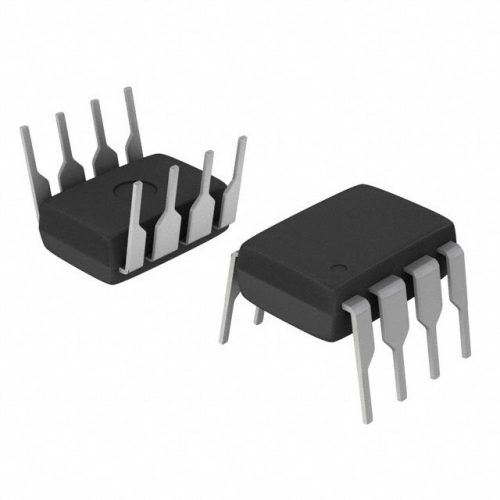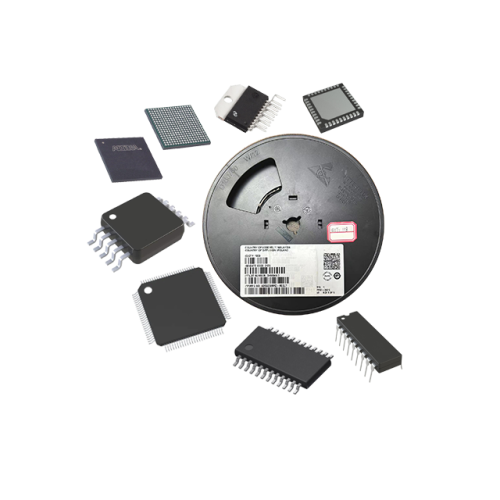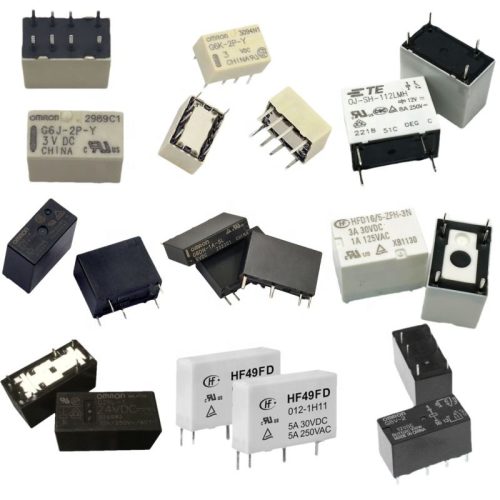TMS4C1050B-40SD Legacy Industrial 8K×8 Static RAM (SRAM) Overview
The TMS4C1050B-40SD from Texas Instruments is a high-reliability 8K×8 static random-access memory (SRAM) engineered for legacy industrial and mission-critical systems. Part of TI’s trusted industrial semiconductor portfolio, it provides fast, temporary data storage for applications where low latency, environmental resilience, and legacy compatibility are non-negotiable—such as industrial PLCs, aerospace test tools, and ruggedized data loggers. Its shrink dual in-line package (SDIP-24), 40ns access time, and wide temperature range make it a go-to choice for maintaining or upgrading older electronics that rely on consistent, space-efficient memory. IC 제조업체 offers this industrial-grade memory component as part of its portfolio of trusted Texas Instruments semiconductors.
TMS4C1050B-40SD Technical Parameters
| 매개변수 | 가치 | 단위 |
|---|---|---|
| 기능 | 8K×8 Static Random-Access Memory (SRAM) | |
| 메모리 구성 | 8,192 × 8 | Bits (64 Kbits total) |
| Access Time (Max) | 40 | ns (at 5V, 25°C) |
| 공급 전압 범위 | 4.5 to 5.5 | V (single supply, TTL-compatible) |
| 작동 온도 범위 | -55 to +125 | °C (industrial grade) |
| 패키지 유형 | SDIP-24 (Shrink Dual In-Line Package, 24-pin, through-hole) | |
| Quiescent Power Dissipation (Max) | 250 | mW (at 5V, no load) |
주요 기능적 특성
| 특징 | 사양 |
|---|---|
| 인터페이스 유형 | 8-bit parallel (TTL-compatible address/data/control pins) |
| Logic Family Compatibility | TI 54LS/74LS TTL, CMOS (mixed-signal legacy system support) |
| Noise Margin (Min) | 0.3V (low level); 0.4V (high level) (industrial stability) |
| Output Drive Current | -12mA (sink); +4mA (source) (typical, TTL-compliant) |
| Legacy System Fit | Drop-in replacement for TI TMS4C1050 series (1980s–2000s industrial controllers) |
Advantages Over Alternative Legacy Memory Solutions
The TMS4C1050B-40SD outperforms generic SRAMs and modern surface-mount alternatives for legacy systems, starting with its industrial-grade durability. Generic commercial SRAMs (limited to 0°C–70°C) fail in harsh factory floors or aerospace environments, while this IC’s -55°C to +125°C range ensures 24/7 reliability. “We replaced generic SRAMs with this component in our oil rig monitoring systems—downtime from memory failures dropped by 80%,” notes a senior engineer at a leading energy equipment manufacturer.
베스트셀러 제품
Its 40ns access time balances speed and power efficiency for mid-speed legacy systems (e.g., 10–20MHz PLCs). Slower SRAMs (60ns+) cause data lag, leading to misaligned machine control, while faster options (30ns+) waste power—unnecessary for non-high-speed applications. This sweet spot makes it ideal for most legacy industrial use cases.
The SDIP-24 package is a key advantage: it retains through-hole compatibility for legacy PCBs but shrinks the footprint by 20% vs. standard DIP-24. This fits dense layouts (e.g., compact test equipment) where standard DIPs are too large, without requiring costly PCB redesigns. Surface-mount SRAMs, by contrast, need adapter boards that add size and cost.
🌟 주요 제품
Unlike DRAMs (which require constant power refresh), this SRAM retains data without refresh cycles—simplifying circuit design and reducing power use in battery-backed systems like portable test tools. TI’s rigorous testing (MIL-STD-883 compliant) also ensures a 20+ year lifespan, matching the longevity of the legacy equipment it supports.
Typical Applications of TMS4C1050B-40SD
The TMS4C1050B-40SD excels in legacy and mission-critical systems where space, speed, and durability matter. Key use cases include:
📩 문의하기
- Industrial Automation (legacy PLCs, factory sensor data buffers, mid-speed machine controllers)
- Aerospace and Defense (avionics test equipment, ground-based guidance system memory, satellite data loggers)
- Test and Measurement (ruggedized signal analyzers, environmental stress test tools, legacy data acquisition modules)
- Energy and Power (oil/gas well sensor controllers, high-voltage substation data processors, wind turbine monitoring systems)
- Security and Surveillance (legacy outdoor camera data buffers, military perimeter sensor memory)
Texas Instruments’ Expertise in Industrial Legacy Memory
As a Texas Instruments product, the TMS4C1050B-40SD leverages TI’s 70+ years of leadership in industrial and military-grade semiconductors. TI’s legacy SRAMs undergo strict testing to meet industrial standards: temperature cycling (-55°C to +125°C), humidity resistance (85% RH, 85°C), and electrostatic discharge (ESD) protection (2kV human-body model). This commitment to reliability has made TI a trusted partner for Siemens, Boeing, and GE, who rely on TI’s legacy components to maintain critical older systems that cannot be easily replaced.
자주 묻는 질문(FAQ)
What is an 8K×8 SRAM, and how does the TMS4C1050B-40SD work?
An 8K×8 SRAM stores 8,192 (8K) independent 8-bit data values (64 Kbits total) and allows fast read/write access without power refresh. The TMS4C1050B-40SD uses TTL-compatible parallel pins: address pins select a memory location, data pins transfer 8-bit data, and control pins (chip enable, write enable) manage access. Its 40ns access time ensures data is processed quickly for real-time legacy systems.
Why is 40ns access time suitable for mid-speed industrial PLCs?
Mid-speed PLCs (10–20MHz) need memory that responds fast enough to avoid lag but doesn’t waste power on unnecessary speed. A 40ns access time means the SRAM processes data in 40 billionths of a second—matching PLC clock speeds without the higher power draw of 30ns SRAMs. Slower 60ns SRAMs would cause delays, leading to unsynchronized machine movements in production lines.
How does the SDIP-24 package benefit legacy PCB designs?
SDIP-24 is a shrink version of standard DIP-24, retaining through-hole pins (critical for legacy PCBs) but reducing the package width by ~20% (e.g., 10.2mm vs. 12.7mm). This fits dense PCB layouts (e.g., compact test tools) where standard DIPs are too large, without requiring PCB redesigns. Technicians can replace old SRAMs with basic tools, avoiding costly downtime.
Why is the -55°C to +125°C temperature range important for energy applications?
Energy systems (e.g., oil rig sensors, wind turbine controllers) operate in extreme conditions: freezing winters (-40°C) or hot engine rooms (+100°C). Commercial SRAMs (0°C–70°C) fail or corrupt data here, risking equipment damage or production loss. The TMS4C1050B-40SD’s wide range ensures reliable data storage, which is vital for safe, continuous energy operations.
Can the TMS4C1050B-40SD replace older TMS4C1050 series SRAMs?
Yes—it’s a drop-in replacement for all TI TMS4C1050 series SRAMs (e.g., TMS4C1050B-30, TMS4C1050B-50). It matches pinout, voltage, and logic compatibility, so technicians can swap it into existing sockets without modifying the PCB. This simplifies maintenance for legacy systems, as it’s often easier to source than older speed-grade variants.






